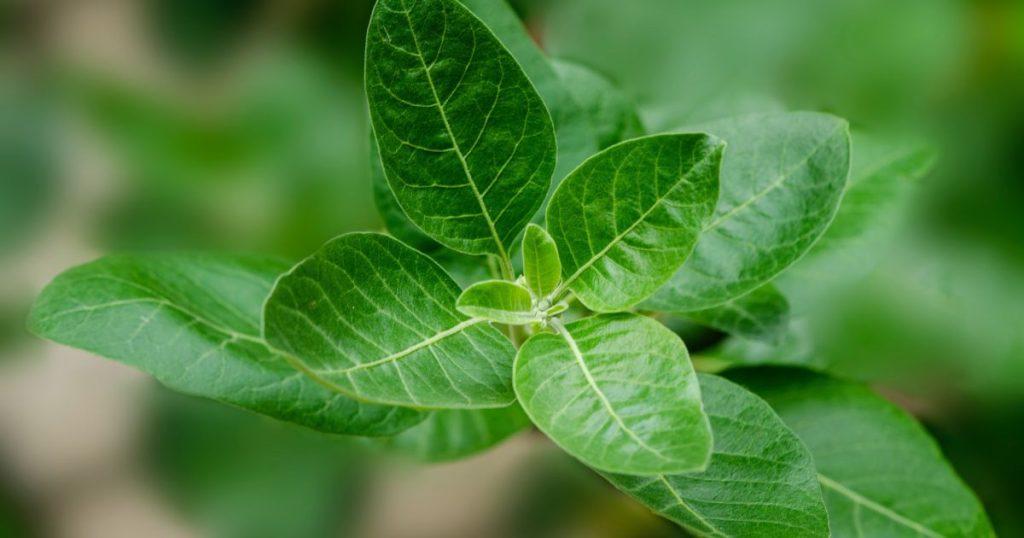The name “Ashwagandha,” rooted in Sanskrit’s “horse smell,” alludes to the plant’s aromatic roots. These roots, steeped in historical medicinal use in places like India, have transitioned into modern times as a versatile supplement. The purported health benefits of Ashwagandha encompass a spectrum, from enhancing energy and mood to improving sleep and fortifying the immune system. Yet, the scientific landscape surrounding Ashwagandha’s extensive health claims remains nuanced. According to insights from the research enthusiasts at Examine.com, Ashwagandha supplementation exhibits consistent reductions in anxiety and stress, possibly linked to its impact on stress-related hormones like cortisol. This intriguing intersection of tradition and modern science prompts a closer inspection into the veracity of Ashwagandha’s wide-ranging benefits.
Here's what we'll be covering in this article
The Science Behind Ashwagandha

We set out on a scientific adventure to solve the mysteries of Ashwagandha in an effort to sort through the complex web of health claims that surround this traditional herb.
Examination of Health Benefits:
The term “Ashwagandha” resonates with a spectrum of health benefits, each claim rooted in centuries of traditional use. From cognitive enhancements to stress alleviation, proponents assert a wide array of positive impacts. Our scrutiny takes us deep into the scientific literature, where we sift through studies and research to discern the tangible evidence supporting Ashwagandha’s purported health benefits. It is within these pages of research that we seek the foundation for the herb’s potential contributions to overall well-being.
Focus on Energy, Mood, Sleep, and Immune Function:
Among the multifaceted claims, Ashwagandha stands out for its suggested influence on energy levels, mood regulation, sleep quality, and immune fortification. As we navigate through the scientific findings, we aim to uncover the threads connecting Ashwagandha to these crucial facets of human health. Does the herb hold the key to a holistic approach to well-being, impacting both the physical and mental health? The exploration of its adaptogen properties becomes paramount as we delve into the potential of Ashwagandha as a tonic for vitality, mental resilience, and immune strength.
Overview of Scientific Data and Its Nuances:
Scientific inquiry is rarely without its nuances. As we seek to provide a comprehensive understanding of Ashwagandha, we take a panoramic view of the available data. The scientific landscape is diverse, with studies varying in methodologies, participant demographics, and outcomes. Our overview extends beyond a mere presentation of positive or negative findings; it delves into the complexities of scientific inquiry. By addressing these nuances, we endeavor to present a balanced and informed perspective, acknowledging the intricacies that shape the ongoing discourse around Ashwagandha.

Ashwagandha in Fitness: Hype or Substance?
The surge in Ashwagandha’s popularity has extended its reach into the realms of fitness, prompting a critical examination of its efficacy as a performance-enhancing supplement. As we scrutinize its impact on fat loss, muscle growth, and overall fitness, the question arises: Is Ashwagandha a groundbreaking addition to the fitness regimen, or is it merely riding the waves of supplement trends?
Evaluation of Ashwagandha’s Role as a General Health Supplement:
Before diving into the specific fitness claims, it’s essential to assess Ashwagandha’s standing as a general health supplement. While historical uses and some contemporary research suggest potential benefits in reducing anxiety and stress, does this translate into a comprehensive enhancement of overall health? Our exploration navigates through the general well-being aspects associated with Ashwagandha, setting the stage for a more focused analysis of its impact on fitness.
Examination of its Impact on Fat Loss, Muscle Growth, and Performance:
In the pursuit of fitness goals, individuals often seek supplements that can catalyze fat loss, promote muscle growth, and enhance performance. Here, we delve into the scientific studies that have scrutinized Ashwagandha’s effects on these key aspects of fitness. Does the herb live up to the expectations set by enthusiastic marketers and fitness enthusiasts, or do the findings paint a more nuanced picture?
Analysis of Relevant Studies and Findings:
As we assess the substance behind the fitness claims, we sift through the available studies that have put Ashwagandha to the test. Are the reported benefits in muscle strength, endurance, and overall fitness supported by robust evidence, or are they yet to withstand the scrutiny of rigorous scientific investigation? Our analysis aims to distill the key findings, offering readers a clear understanding of the role Ashwagandha plays, if any, in the pursuit of fitness excellence.

Performance Enhancement with Ashwagandha
Let’s talk about its impact on performance metrics, including muscle strength gains and cardiovascular fitness.
Muscle Strength Gains:
A notable 2018 study takes center stage in our exploration, revealing compelling insights into the influence of Ashwagandha on muscle strength. Over a 12-week period, subjects supplementing with Ashwagandha demonstrated a noteworthy improvement in their squat 1-repetition maximum (1RM). The gains, almost double those observed in subjects consuming a placebo, beckon attention. Our analysis scrutinizes the specifics of this study and others, probing into the mechanisms through which Ashwagandha might contribute to enhanced muscle strength.
Performance Metrics: Bench Press and Leg Extension 1RMs:
Beyond the squat, our examination extends to other key performance indicators — the bench press and leg extension 1-repetition maximums. Findings from diverse studies, including a 2015 investigation, suggest that Ashwagandha supplementation correlates with higher gains in these critical metrics compared to a placebo. The consistent theme of performance enhancement prompts us to consider the broader implications of Ashwagandha in resistance training and muscular development.
Cardiovascular Fitness and VO2max:
In cardiovascular fitness, Ashwagandha once again takes the spotlight. VO2max, a crucial measure of one’s cardiorespiratory capacity, sees improvements with consistent Ashwagandha supplementation. Our exploration navigates through the studies that unveil this correlation, shedding light on the potential cardiovascular benefits that may accompany the pursuit of physical excellence through Ashwagandha.
The Need for More Data
As the interest in Ashwagandha continues to grow, a critical lens on the available data reveals both promises and gaps in our understanding. While existing studies suggest noteworthy performance enhancements and health benefits, a prudent approach demands a closer look at the intricacies of the current research landscape.
Current Research Landscape:
The existing body of research on Ashwagandha, though promising, paints a picture that is far from exhaustive. As we assess the studies supporting its potential in reducing anxiety, improving stress response, and boosting physical performance, the limitations become apparent. Notably, a significant portion of the research focuses on individuals with limited training experience, leaving questions about its applicability to seasoned fitness enthusiasts and athletes.
Conclusion: Navigating the Ashwagandha Landscape
In the labyrinth of wellness and supplementation, Ashwagandha stands as a captivating figure, drawing attention with promises of holistic well-being and enhanced performance. As we conclude our exploration, the intricate landscape of Ashwagandha’s potential unfolds, offering both glimpses of promise and reminders of the nuances that accompany its story.
Acknowledging the Spectrum of Benefits:
Ashwagandha’s journey through our scrutiny reveals a spectrum of potential benefits, ranging from stress reduction to notable improvements in performance metrics. The herb’s historical roots, coupled with contemporary scientific interest, paint a picture of an adaptogen that could play a multifaceted role in promoting mental and physical well-being.
Performance Gains and Nuances:
The promising outcomes in muscle strength gains, particularly in squat and bench press 1-repetition maximums, spark interest in Ashwagandha’s potential contributions to fitness pursuits. Yet, the nuanced narrative reminds us of the limitations inherent in the current body of research. The emphasis on individuals with novel training experiences raises questions about the broader applicability of these findings, urging caution in the interpretation of its performance-enhancing capabilities.
Again, yes, the data is limited to fitness-related outcomes, but I’m honestly quite surprised that the little data we do have is so consistently positive. Don’t Forget to Share this article with friends, fitness enthusiasts, and anyone curious about the secrets of Ashwagandha.




